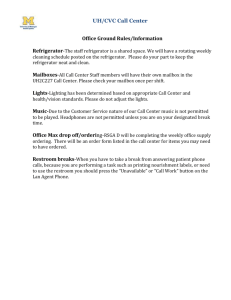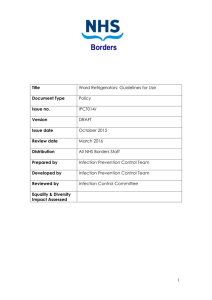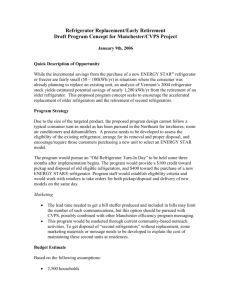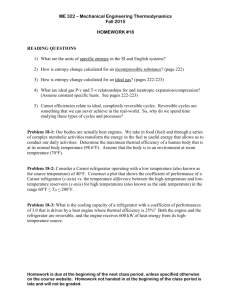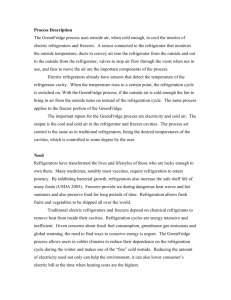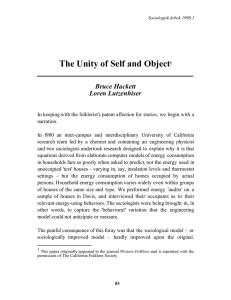Is That Old Refrigerator Worth Saving
advertisement
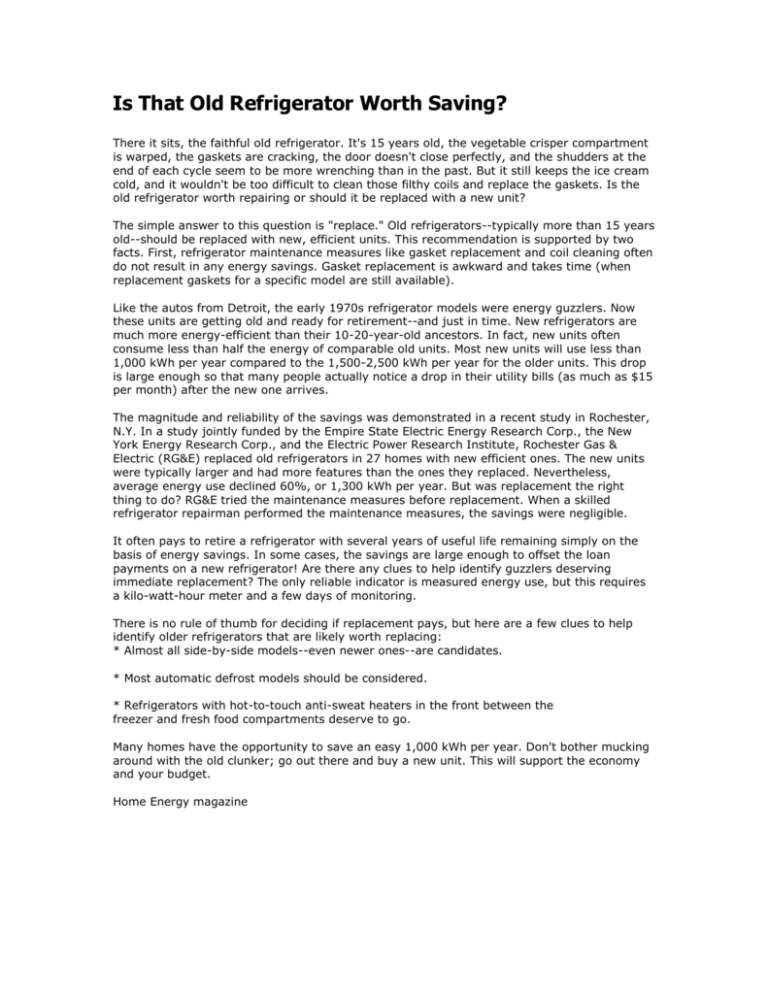
Is That Old Refrigerator Worth Saving? There it sits, the faithful old refrigerator. It's 15 years old, the vegetable crisper compartment is warped, the gaskets are cracking, the door doesn't close perfectly, and the shudders at the end of each cycle seem to be more wrenching than in the past. But it still keeps the ice cream cold, and it wouldn't be too difficult to clean those filthy coils and replace the gaskets. Is the old refrigerator worth repairing or should it be replaced with a new unit? The simple answer to this question is "replace." Old refrigerators--typically more than 15 years old--should be replaced with new, efficient units. This recommendation is supported by two facts. First, refrigerator maintenance measures like gasket replacement and coil cleaning often do not result in any energy savings. Gasket replacement is awkward and takes time (when replacement gaskets for a specific model are still available). Like the autos from Detroit, the early 1970s refrigerator models were energy guzzlers. Now these units are getting old and ready for retirement--and just in time. New refrigerators are much more energy-efficient than their 10-20-year-old ancestors. In fact, new units often consume less than half the energy of comparable old units. Most new units will use less than 1,000 kWh per year compared to the 1,500-2,500 kWh per year for the older units. This drop is large enough so that many people actually notice a drop in their utility bills (as much as $15 per month) after the new one arrives. The magnitude and reliability of the savings was demonstrated in a recent study in Rochester, N.Y. In a study jointly funded by the Empire State Electric Energy Research Corp., the New York Energy Research Corp., and the Electric Power Research Institute, Rochester Gas & Electric (RG&E) replaced old refrigerators in 27 homes with new efficient ones. The new units were typically larger and had more features than the ones they replaced. Nevertheless, average energy use declined 60%, or 1,300 kWh per year. But was replacement the right thing to do? RG&E tried the maintenance measures before replacement. When a skilled refrigerator repairman performed the maintenance measures, the savings were negligible. It often pays to retire a refrigerator with several years of useful life remaining simply on the basis of energy savings. In some cases, the savings are large enough to offset the loan payments on a new refrigerator! Are there any clues to help identify guzzlers deserving immediate replacement? The only reliable indicator is measured energy use, but this requires a kilo-watt-hour meter and a few days of monitoring. There is no rule of thumb for deciding if replacement pays, but here are a few clues to help identify older refrigerators that are likely worth replacing: * Almost all side-by-side models--even newer ones--are candidates. * Most automatic defrost models should be considered. * Refrigerators with hot-to-touch anti-sweat heaters in the front between the freezer and fresh food compartments deserve to go. Many homes have the opportunity to save an easy 1,000 kWh per year. Don't bother mucking around with the old clunker; go out there and buy a new unit. This will support the economy and your budget. Home Energy magazine


